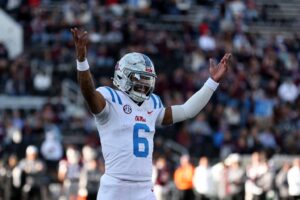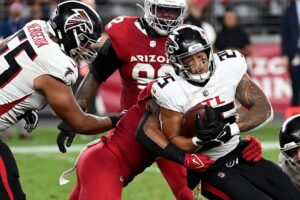Massachusetts Regulators Scrutinizing VIP Loyalty Programs Offered by Mobile Sportsbooks
-
Bookmakers Review
- October 23, 2025

The Massachusetts Gaming Commission is one of the most proactive regulatory bodies in the nation and is now discussing the way in which mobile sportsbooks in the state target their VIP customers and if it has become predatory.
Red Carpet Treatment
Companies often treat their best customers to perks that keep them loyal and coming back for more. The sports betting industry is no different, but the Massachusetts Gaming Commission (MGC) is concerned that these “high rollers” are being targeted as easy marks.
Some of the major online betting powerhouses like FanDuel and DraftKings are coming under increasing scrutiny by regulators regarding their VIP guidelines and if those protocols are aimed at losing gamblers who may not be in control of their finances.
“VIP programs should be for those who can afford to be VIPs, and it shouldn’t be predatory,” said Chair Jordan Maynard at the commission’s meeting earlier this month.
Commission Research Director Mark Vander Linden said that limited research suggests that VIP programs are linked to “higher risk gambling behavior.”
Vander Linden proposed several VIP guardrails that should be an industry standard, including:
- Setting a minimum age of 25 for VIP status and participation. (The legal age to bet in Massachusetts is 21.)
- Requiring affordability checks before granting VIP access. (In the U.K. for example, gambling operators must check bank statements.)
- Eliminating risk-promoting incentives.
Other concerns regarding VIP guidelines addressed the compensation that online gaming hosts receive from their top-tier customers and if that remuneration is tied to betting activity in the form of commissions.
Chairman Maynard acknowledged the MGC is often at the vanguard of policing gaming companies with new and innovative policies that can be viewed by many of the online sportsbooks as detrimental to the industry.
Creating a Blueprint
The MGC is requesting information regarding the specific VIP programs being offered in Massachusetts and has not stated that its goal is to eliminate these incentives.
However, the regulatory agency is trying to ensure that the sportsbooks are targeting customers who have the financial wherewithal to control their gambling habits and not bet more to achieve or maintain these inducements.
The mobile sportsbooks have countered that their loyalty programs are no different than those found in other industries and that their hosts have been properly trained in spotting addictive behavior.
Still, some commissioners are skeptical, wondering aloud how the hosts are compensated.
Massachusetts Gaming Commissioner Eileen O’Brien is one who wants to know how the hosts are compensated and if part or all of their salary is directly tied to their customers’ gambling activity.
Once these questions are answered, the MGC seeks to draft guidelines that will be followed by all the mobile sportsbooks operating in the Bay State and could be a model used by other states.







